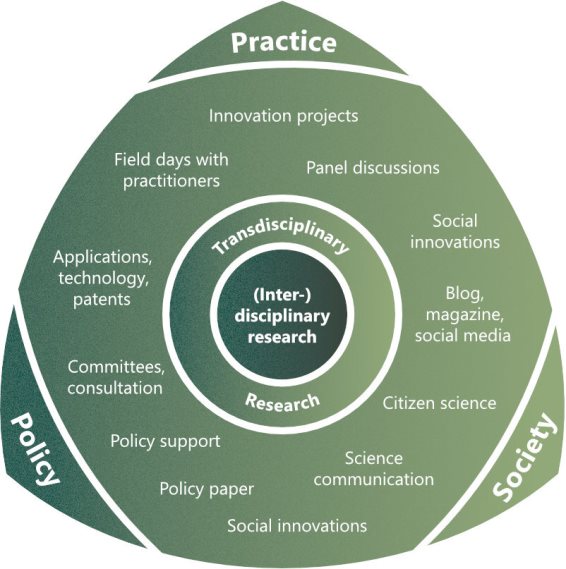Only transfer of scientific knowledge to the world outside science leads to change and transformation. Through knowledge transfer, innovations from research find their way into practice, politics and society. On the other hand, science needs impulses from practice, politics and society to contribute to sustainable transformation and change.
In the spirit of the Leibniz Association, ZALF has a broad understanding of knowledge transfer that aims to achieve an impact in practice, politics and society through information, consultation and implementation. Our special strength is our many years of experience in transdisciplinary research - meaning
direct cooperation and collaborative learning with partners outside the scientific community. To this end, we use a variety of opportunities for mutual exchange. An overview of our transfer activities can be found in our
transfer booklet. Current information is available in our
transfer newsletter.

Figure 1: ZALF transfer formats, © ZALF
Knowledge transfer of ZALF and Leibniz Association
According to ZALF's understanding, the transfer of research results includes all processes that are directed at the non-academic world. Knowledge transfer at ZALF is guided by the Leibniz Association's Leibniz Transfer Systematic with its broad and dialogical understanding of transfer. From the perspective of the seven Leibniz Transfer Pathways, we prioritise five ones at ZALF (Figure 2).

Figure 2: Leibniz transfer paths with particular relevance to ZALF, © ZALF
Contact for Transfer and Science Communication
At ZALF, the Press and Public Relations Department with a focus on science communication and the Transfer Coordinator work closely together and jointly support researchers in knowledge transfer of their projects and beyond (Figure 1).
- Do you want information on transfer at ZALF?
- Are you looking for cooperation partners?
- Are you looking for specialists in the field of agricultural landscape research?
- Do you have a project idea in mind?
- Do you want to participate in a research project?
Please contact:
